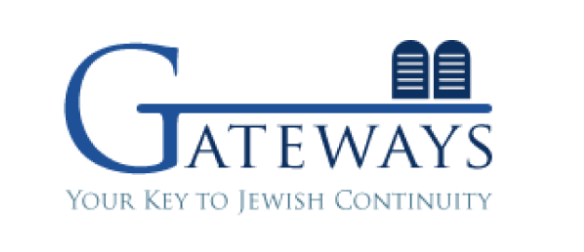Stolen Identities Used to File Tax Returns Grows 644 Percent - Fraudwar Blogspot
Taxpayer Advocate Report to Congress - 2008
Ed Dickson at Fraudwar Blog reported on the IRS Taxpayer Advocate Service (TAS) Fiscal Year 2009 Objectives, report to Congress. The IRS has proposed improved processes to identify and manage consumer files where notification of identity theft has been previously made and fraud previously determined.
My experience in the past working with employment fraud is that, year upon year, a consumer who is a victim of this type of identity theft must wait for a letter from the IRS requesting payment for unreported income, submit a claim of non-responsibility and wait for an investigation from the IRS which occurs behind closed doors. When the IRS requests to be paid, the consumer contacts TAS and a fraud claim is submitted. The role of the employer is important. The IRS usually wants the consumer to attempt to contact the employer, the furnisher of employment data to the IRS, to seek correction of the record. The consumer, the party defrauded, is to attempt to set the record straight with the data furnisher on behalf of the US Federal Government's main tax collection authority, which has arresting and subpoena power. Obviously, something is wrong with this process.
Consumers subjected to employment fraud identity theft must take this step as if it were just a normal part of the annual tax filing process, but one which takes place months after the initial filing of a return. When the records are mixed, refunds are delayed and consumers have this threat to face late fees and penalties unless the proper corrections are made.
Essentially, the consumer becomes a non-paid employee of the IRS, initiating what, in a more just process would be a criminal investigation either handled by the IRS or ICE (or both). The task is made more complicated by the fact that the consumer is well-advised to request from the Social Security Administration (SSA) a detailed work history which includes copies of (or a listing of) previous years (10 years usually) W-2s and 1099-Misc forms submitted by employers to the SSA for withholding purposes. These records are used to uncover evidence of the fraud and discover if any other fraudulent employment was obtained using the consumer's Social Security Number. These forms will also verify the address on file of the fraudster, at least that reported by the employer to the SSA. The SSA cannot by law share this information with the IRS.
Theoretically, SSA could implement fraud practices which look for inconsistencies in their files based upon employment information submitted to the agency and share this information with the IRS for investigation or investigate themselves. Such analysis may not be easy and often good explanations can be given for why a consumer for instance has three full time jobs worth of income originating from three separate corporate entities and reports three (or more) addresses as residences around the USA. However, the Fair Credit Reporting Act, in a provision soon to become active later this year will require financial entities to look for similar inconsistencies in the long awaited "Red Flag Rules". But, as usual, the Federal Government does not include itself in such provisions.
Back to our consumer - unless some action is taken to intervene with the employer (provided the employer is merely also a victim of the fraud which is NOT always the case), the process will repeat itself year after year. Then again, the fraudster may start anew in a different location each year.
Unlike credit type identity theft, law enforcement at the local level often does not or is unable to assist a consumer with employment fraud. Even in situations where the fraudster lives within the same jurisdiction, this is not a guarantee of law enforcement intervention. It is encouraging to see the IRS make progress on assisting law abiding consumers with improved fraud reporting and file management. Now, if the IRS will only be able to investigate and make arrests. Investigations and arrests of identity theft perpetrators are few and far between.
14 July 2008
Employment Identity Theft and the IRS
Posted by APRPEH at Monday, July 14, 2008
Labels: employment id theft, FCRA, fraud, Fraudwar Blog, identity theft, IRS, SSA, US Government
Subscribe to:
Post Comments (Atom)
What Words Offend Arabs? The Truth.
Children's Poetry Booklet Recalled After Arabs Complain
(Israeli censorship kowtows to Arabs.
When Will We Tell The Truth Without Fear)
(IsraelNN.com 7 Sivan 5768/June 10, '08) Ynet's web site and Arab complaints against a ten-year-old boy's poem about terrorists has resulted in the recall of all of the Nes Ziona municipality's children's poetry booklets.
Ynet boasts that its coverage of the poem resulted in its being recalled.
The text of the poem (Ynet's translation):
Ahmed's bunker has surprises galore: Grenades, rifles are hung on the wall. Ahmed is planning another bombing!What a bunker Ahmed has, who causes daily harm.Ahmed knows how to make a bomb. Ahmed is Ahmed, that's who he is, so don't forget to be careful of him.We get blasted while they have a blast!Ahmed and his friends could be wealthy and sunny, if only they wouldn't buy rockets with all their money.
Poetry competition director Marika Berkowitz, who published the booklet, was surprised at the protests and told Ynet: "This is the boy's creation and this is what he wanted to express. Of course there should be a limit, but I think the there is no racism here. 'Ahmed' is a general term for the enemy. These are the murmurings of an innocent child."
The Education Ministry told Ynet: "The local authority that published the booklet should have guided the students in a more correct manner through the schools. The district will investigate the issue with the local authorities."
(Israeli censorship kowtows to Arabs.
When Will We Tell The Truth Without Fear)
(IsraelNN.com 7 Sivan 5768/June 10, '08) Ynet's web site and Arab complaints against a ten-year-old boy's poem about terrorists has resulted in the recall of all of the Nes Ziona municipality's children's poetry booklets.
Ynet boasts that its coverage of the poem resulted in its being recalled.
The text of the poem (Ynet's translation):
Ahmed's bunker has surprises galore: Grenades, rifles are hung on the wall. Ahmed is planning another bombing!What a bunker Ahmed has, who causes daily harm.Ahmed knows how to make a bomb. Ahmed is Ahmed, that's who he is, so don't forget to be careful of him.We get blasted while they have a blast!Ahmed and his friends could be wealthy and sunny, if only they wouldn't buy rockets with all their money.
Poetry competition director Marika Berkowitz, who published the booklet, was surprised at the protests and told Ynet: "This is the boy's creation and this is what he wanted to express. Of course there should be a limit, but I think the there is no racism here. 'Ahmed' is a general term for the enemy. These are the murmurings of an innocent child."
The Education Ministry told Ynet: "The local authority that published the booklet should have guided the students in a more correct manner through the schools. The district will investigate the issue with the local authorities."

















0 comments:
Post a Comment